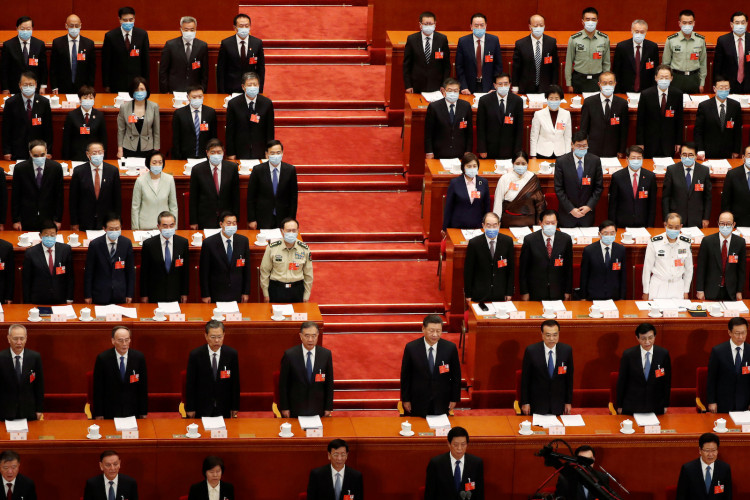Chinese President Xi Jinping secured an unprecedented third term in office on Friday (Mar. 10), cementing his position as one of the most powerful leaders in the nation's history. The move, announced at the National People's Congress (NPC), marks a departure from the traditional two-term limit for the presidency and solidifies Xi's position as the country's most dominant political figure.
"I swear to be loyal to the constitution of the People's Republic of China, to uphold the authority of the constitution, to perform my statutory obligations, to be loyal to the motherland, to be loyal to the people," Xi said in his re-election speech.
In an election with no other candidate, over 3,000 members of China's parliament voted unanimously in the Great Hall of the People for Xi to be president. He was also unanimously reelected as chairman of the country's Central Military Commission for a third term.
Xi's lengthy tenure as China's president has solidified his position as one of the country's most powerful leaders in history. After being appointed to the role in 2013, Xi quickly consolidated his power, cracking down on corruption and implementing sweeping economic and social reforms.
Since then, he has overseen a major expansion of China's global influence, including the ambitious Belt and Road infrastructure initiative and an increased military presence in the South China Sea.
Despite criticism from some international observers over China's human rights record and its handling of the COVID-19 pandemic, Xi has maintained his grip on power, securing an unprecedented third term in office in March 2023.
Xi has implemented a wide range of economic and social reforms, including efforts to combat corruption, promote innovation, and expand access to education and healthcare.
Under Xi's leadership, China has also become more assertive on the global stage, with initiatives such as the Belt and Road infrastructure project and the Asian Infrastructure Investment Bank aimed at increasing China's influence in the region and beyond.
Xi has also worked to strengthen China's military, overseeing the modernization of the armed forces and increasing China's presence in the South China Sea.
In addition to his efforts to promote economic and strategic goals, Xi has emphasized the importance of political ideology, promoting a vision of "socialism with Chinese characteristics" and cracking down on dissent and opposition.
While some have criticized his approach to human rights and political freedom, Xi remains a highly popular figure in China, where his leadership is widely seen as having brought stability, growth, and prosperity.






